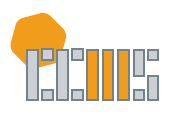Abstract / Synopsis
The notion of dépaysement épistémologique (epistemological disorientation) aims to capture the sense of disorientation when a learner is led to question their prior assumptions and understandings, generating uncertainty in a context in which they thought they had certain knowledge. This article describes an activity used with a group of practicing mathematics teachers in Uruguay that integrates elements of the history of mathematics related to Gödel’s incompleteness theorem, with the aim of provoking in the participants the experience of dépaysement épistémologique. Results show that several of the teachers participating in the activity felt dépaysement épistémologique, and this feeling triggered empathy towards their own students. The article ends with a discussion of the real possibilities of integrating the history of mathematics in secondary mathematics courses and in the training of teachers.
DOI
10.5642/jhummath.VSSK5786
Recommended Citation
Ana J. Lemes, "Gödel's Theorem in the Continuing Education of Mathematics Teachers," Journal of Humanistic Mathematics, Volume 14 Issue 1 (January 2024), pages 40-53. DOI: 10.5642/jhummath.VSSK5786. Available at: https://scholarship.claremont.edu/jhm/vol14/iss1/4
Terms of Use & License Information
Included in
Adult and Continuing Education and Teaching Commons, Arts and Humanities Commons, Mathematics Commons, Science and Mathematics Education Commons
